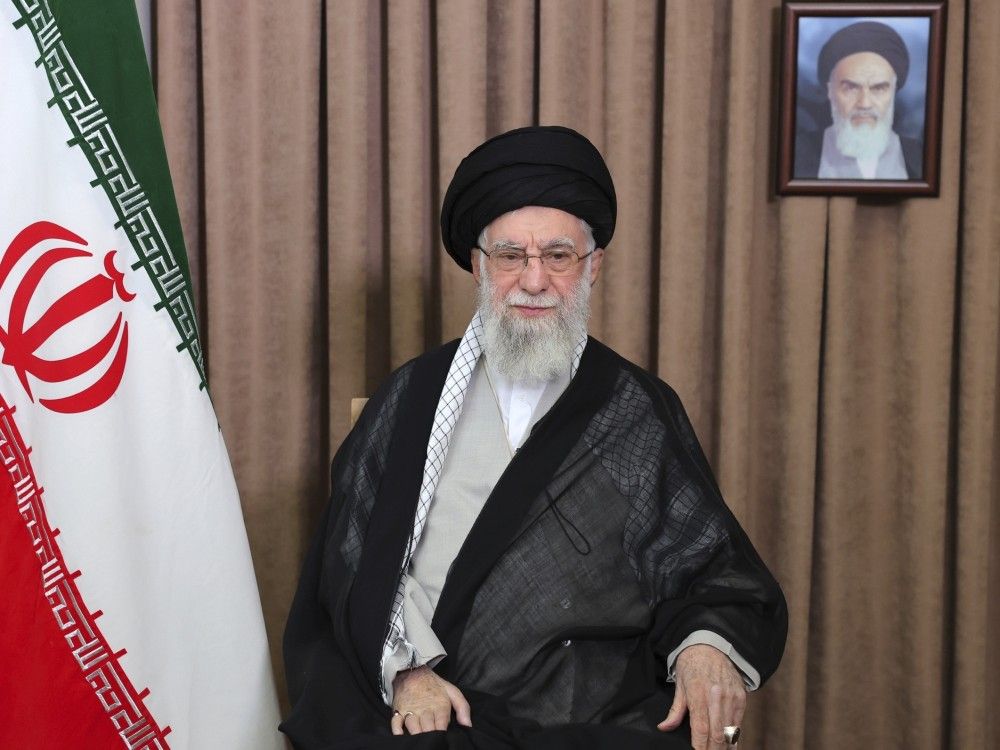Iran’s Supreme Leader, Ayatollah Ali Khamenei, rejected U.S. President Donald Trump’s recent demand for Iran’s “unconditional surrender,” warning that any American military intervention would cause “irreparable damage” to the United States. In a June 18 televised speech, Khamenei emphasized Iran’s resolve to resist external pressures amid escalating tensions connected to the conflict between Israel and Iran. The exchange of sharp rhetoric reflects heightened risks of regional conflict, as the U.S. signals military readiness while Israel intensifies airstrikes on Iranian targets.
In his televised address on June 18, Ayatollah Ali Khamenei firmly dismissed President Donald Trump’s call for Iran to surrender without conditions, describing such demands as unacceptable and a miscalculation by the United States. Khamenei underscored that Iran remains steadfast in its commitment to defending its sovereignty and interests against foreign pressures. He cautioned that any U.S. military intervention would provoke consequences far beyond the region, inflicting “irreparable damage” upon American security and interests.
Context of Rising Tensions
The Supreme Leader’s remarks come amid escalating hostilities associated with the broader Middle Eastern geopolitical landscape, particularly the ongoing conflict involving Israel and Iran. Recent incidents have seen increased military activity, including intensified Israeli airstrikes targeting Iranian installations in Syria and other regional locations believed to be connected to Iran-backed militias. The United States has concurrently signaled its readiness to support Israel through enhanced military presence and surveillance operations, further heightening tensions.
U.S. Military Posture and Diplomatic Implications
Following President Trump’s statements, U.S. officials reiterated their stance on countering Iranian influence, expressing concern over Iran’s involvement in regional conflicts. However, the administration has also emphasized a preference for diplomatic resolution, warning that any military engagement would not be without significant risks. Analysts note that the rhetoric from both sides increases the potential for miscalculation, thereby raising the stakes for regional stability and international security.
Regional and International Reactions
International observers have expressed concern over the potential for a broader confrontation stemming from the current exchange of threats. Regional actors have varied reactions, with some urging restraint and dialogue to prevent escalation, while others have taken sides, reflecting deep-seated political and sectarian divides. The United Nations and other diplomatic bodies have called for renewed efforts to de-escalate tensions and resume negotiations toward lasting peace in the region.
Potential Outcomes and Ongoing Developments
- The possibility of increased U.S. military involvement in the region remains a critical point of focus for policymakers worldwide.
- Iran’s rejection of surrender demands signals a firm posture that may complicate diplomatic efforts to ease tensions.
- Further Israeli military operations targeting Iranian assets are expected, potentially escalating conflict dynamics.
- International diplomatic initiatives may intensify as parties seek to prevent open conflict.
As the situation evolves, stakeholders and observers continue to monitor developments closely, recognizing that the path forward remains uncertain and contingent upon the actions and decisions of the involved parties.
In summary, the recent exchange between Iran’s Supreme Leader Ayatollah Ali Khamenei and U.S. President Donald Trump highlights the deepening tensions and complex challenges facing the Middle East. Khamenei’s firm rejection of unconditional surrender and warnings against U.S. military intervention underscore Iran’s resolute stance amid a volatile security environment. With intensified military activities, differing international reactions, and ongoing diplomatic efforts, the risk of escalation persists. The situation remains dynamic, requiring careful monitoring and sustained dialogue to mitigate the potential for broader conflict and to promote regional stability.

